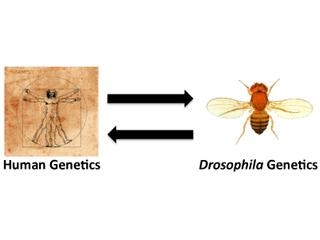We are privileged to work on projects with many outstanding clinicians and scientists, including:
Jan and Dan Duncan Neurological Research Institute and Baylor College of Medicine
Hugo Bellen, Ph.D. (Principal Investigator)
Juan Botas, Ph.D. (Principal Investigator)
The Baylor Parkinson's Disease Center and Movement Disorders Clinic
Joseph Jankovic, M.D. (Director)
Baylor Alzheimer's Disease and Memory Disorders Center
Rachelle Doody, M.D., Ph.D. (Director)
Brigham and Women's Hospital and Harvard Medical School
Philip L. De Jager, M.D., Ph.D. (Principal Investigator)
Mel B. Feany M.D., Ph.D. (Principal Investigator)
Rush Alzheimer's Disease Center
David A. Bennett, M.D. (Director)
Cohorts for Heart and Aging Research in Genomic Epidemiology
Sudha Seshadri, M.D. (Boston University)
Lenore Launer, Ph.D. (National Institute on Aging)
Myriam Fornage, Ph.D. (University of Texas Houston)
M. Arfan Ikram, M.D. (Erasmus Medical Center)
Joshua Bis, Ph.D. (University of Washington) University of Maryland
Parkinson's Disease Center

Recent advances have made the discovery of genetic susceptibility loci for complex human phenotypes a reality, including nervous system disorders. The critical next step will be to definitively identify the responsible genes and understand their functions in both health and disease. Our research integrates genetic investigation in human subjects and model organisms, with the goal of understanding brain function and aging, and improving the treatment of neurologic disease. We focus on Alzheimer's disease (AD) and Parkinson's disease (PD), two incurable neurodegenerative disorders and experimental paradigms for the age-dependent failure of brain cognitive and motor control in humans.
Our Research Approaches
Our overall strategy incorporates two complementary approaches:
We conduct human genetic analyses based on clinical and neuropathologic endophenotypes, promoting both functional dissection of emerging disease susceptibility loci and novel gene discovery.
Genetic models of disease in the fruit fly, Drosophila melanogaster, are leveraged for rapid functional screening of human susceptibility loci, allowing efficient identification of responsible genes and characterization of mechanisms in disease pathogenesis.
Projects
Projects are initiated in both the human or model organism context, and reciprocal, cross-species investigation promotes efficient progress toward our goals. Discovery, validation, and functional characterization of the gene networks responsible for AD and PD susceptibility will advance our understanding of the neurobiology of cognition and motor control, reveal the genetic architecture of healthy and pathologic brain aging, and ultimately, promote improved therapies.
Funding
Our research is supported by:
- National Institutes of Health
- National Institute on Aging
- National Institute of Neurological Disorders and Stroke
- The Burroughs Wellcome Fund
- The Parkinson's Study Group
- The Parkinson's Disease Foundation








